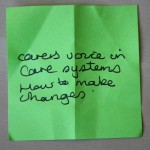
Self-funders (or elf-funders) are people who have to pay for their social care using their own finances, as opposed to receiving partial or full funding from their local council’s adult social care department. In England a threshold exists of £23,250, those who have above this amount in savings and sometimes other assets are deemed to [read the full story…]









